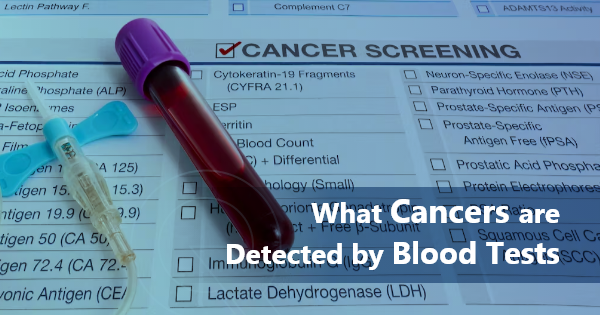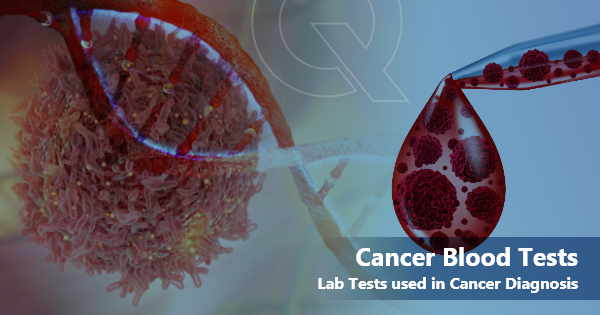Cancer, a complex and multifaceted disease, has challenged the medical community for generations. However, recent advancements in medical technology have heralded a new era in cancer diagnostics. Among these breakthroughs are cancer blood tests, a category of lab tests that offer a minimally invasive yet highly effective method for detecting and monitoring various types of cancer. In this article, we will explore the world of cancer blood tests, their significance in cancer diagnosis, and the diverse range of applications they hold in modern oncology.
I. The Evolution of Cancer Blood Tests
A. Traditional Cancer Diagnostics
Historically, cancer diagnosis predominantly relied on invasive procedures like biopsies, imaging studies, and physical examinations. While these methods remain crucial, they often require more time and can be physically demanding for patients.
B. The Paradigm Shift: Liquid Biopsies
Cancer blood tests, often referred to as liquid biopsies, represent a revolutionary approach to cancer diagnostics. They involve the analysis of specific components in the blood, such as circulating tumor cells (CTCs) or fragments of DNA shed by tumors, to glean insights into the presence, type, and progression of cancer.
II. The Significance of Cancer Blood Tests
A. Early Detection and Monitoring
One of the most significant advantages of cancer blood tests is their ability to detect cancer in its earliest stages, often before symptoms manifest. Additionally, these tests allow for continuous monitoring of the disease’s progression or regression throughout the course of treatment.
B. Minimally Invasive
Unlike traditional biopsies, which require surgical procedures to extract tissue samples, cancer blood tests are minimally invasive. They involve a simple blood draw, reducing discomfort and risk for the patient.
C. Comprehensive Insight into Cancer
Cancer blood tests provide a comprehensive view of the genetic makeup of a tumor. This enables oncologists to tailor treatment plans based on the specific mutations and genetic characteristics of the cancer.
III. Types of Cancer Blood Tests
A. Circulating Tumor DNA (ctDNA) Tests
ctDNA tests analyze fragments of DNA released by cancer cells into the bloodstream. These tests can detect genetic mutations specific to certain types of cancer, aiding in diagnosis, treatment selection, and monitoring of treatment response.
B. Circulating Tumor Cell (CTC) Tests
CTC tests identify and isolate intact cancer cells circulating in the bloodstream. They provide valuable information about the aggressiveness of a tumor, its potential to metastasize, and the effectiveness of treatment.
C. Protein Biomarker Tests
Proteins associated with specific types of cancer, known as biomarkers, can be detected in the blood. Examples include the prostate-specific antigen (PSA) test for prostate cancer and the CA-125 test for ovarian cancer.
D. Exosome-Based Tests
Exosomes are tiny vesicles released by cells, including cancer cells. They carry genetic material and proteins that can be analyzed to provide insights into the presence and characteristics of cancer.
IV. Clinical Applications of Cancer Blood Tests
A. Early-Stage Cancer Detection
Cancer blood tests excel in the early detection of cancer, providing an opportunity for timely intervention when treatment is most effective. For example, ctDNA tests have shown promise in detecting early-stage lung cancer and colorectal cancer.
B. Monitoring Treatment Response
Throughout the course of cancer treatment, blood tests can be used to monitor how well the treatment is working. Changes in ctDNA levels or specific biomarkers can indicate if the cancer is responding to treatment or if adjustments are needed.
C. Residual Disease Monitoring
After surgery or other treatments, cancer blood tests can be used to detect any remaining cancer cells that may not be visible on imaging studies. This helps guide post-treatment decisions and may identify the need for additional therapy.
V. Limitations and Considerations
A. Sensitivity and Specificity
While cancer blood tests offer remarkable potential, they are not infallible. Sensitivity and specificity, or the ability to accurately identify true positives and negatives, can vary depending on the type of test and the specific cancer being screened.
B. False Positives and False Negatives
False positive results can cause unnecessary anxiety and further testing, while false negatives may delay necessary treatment. As with any diagnostic test, interpretation should be done in conjunction with clinical evaluation.
C. Complementing Traditional Diagnostics
Cancer blood tests are most effective when used in conjunction with other diagnostic methods, such as imaging studies and tissue biopsies. They provide an additional layer of information that enhances the overall diagnostic picture.
VI. The Future of Cancer Blood Tests
A. Integration of Artificial Intelligence
The integration of artificial intelligence (AI) and machine learning algorithms is poised to enhance the accuracy and interpretation of cancer blood test results. These technologies hold the potential to refine diagnosis and treatment planning further.
B. Expanding Applications
As research and technology continue to advance, the scope of cancer blood tests is expected to expand. They may play a crucial role in screening for a broader range of cancers and identifying targetable genetic mutations.
VII. Empowering Patients and Healthcare Providers
Cancer blood tests represent a paradigm shift in cancer diagnostics, offering a less invasive, yet highly effective approach to detecting and monitoring cancer. By providing valuable genetic and molecular information, they empower both patients and healthcare providers to make informed decisions regarding treatment options and strategies.
Conclusion: Pioneering the Future of Cancer Diagnostics
Cancer blood tests stand at the forefront of a new era in oncology, offering a more personalized and precise approach to cancer diagnosis and management. As technology continues to advance and research evolves, these tests hold the promise of transforming how we detect and treat cancer. By harnessing the power of liquid biopsies, we are not only improving early detection but also revolutionizing the way we understand and combat this complex disease. In the years ahead, cancer blood tests will undoubtedly continue to play a pivotal role in the fight against cancer, bringing us closer to more effective treatments and improved outcomes for patients around the world.





